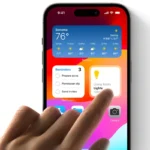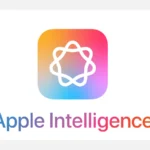Learning to code has never been easier thanks to mobile apps. You can now pick up programming skills right from your phone or tablet without needing a computer. The best coding apps offer fun, interactive ways to learn languages like Python, JavaScript, and HTML while fitting learning into your busy schedule.
These apps come with different features to help beginners and intermediate learners. Some use game-like lessons that make coding feel less scary. Others provide real coding challenges that help you practice what you’ve learned. Many popular coding apps like Grasshopper, Mimo, and SoloLearn offer free options to get started.
1. Mimo: Learn Coding
Mimo is a user-friendly app designed to help beginners learn how to code. It offers courses in multiple programming languages including Python, JavaScript, HTML, CSS, and more.
The app breaks down complex coding concepts into bite-sized lessons that are easy to understand. Each lesson only takes a few minutes to complete, making it perfect for learning on the go.
Mimo has gained popularity among millions of learners worldwide. Its step-by-step approach makes learning to code accessible and effective for people with no prior coding experience.
Users can start for free and learn at their own pace. The app includes interactive exercises that let users practice coding directly within the app.
Mimo is available on both Google Play and the App Store. This cross-platform availability makes it easy for anyone with a smartphone to start learning.
The app covers not only basic programming but also more advanced topics. Users can progress to learn about React, Express, Node, and TypeScript as they advance.
According to some users on Reddit, Mimo is best suited for complete beginners. It works well for those who have never seen code before and want a gentle introduction.
One of Mimo’s strengths is how it makes coding less scary for newcomers. The interface is clean and the lessons are short enough to fit into busy schedules.
The app uses a practical approach by teaching through real examples. This helps users see how coding applies to actual projects they might want to build.
While Mimo teaches the basics well, some users note that additional resources may be needed for advanced skills. Still, it provides a solid foundation for anyone starting their coding journey.
2. Sololearn: Learn to Code
Sololearn is a popular coding app that offers a wide range of programming courses for beginners and intermediate learners. The app covers over 20 programming languages including Python, JavaScript, HTML, CSS, SQL, Java, and C#.
What makes Sololearn stand out is its bite-sized learning approach. Users can learn coding through short, interactive lessons that fit into busy schedules. The app is designed to help you start writing real, functional code quickly.
The learning experience on Sololearn is highly interactive. Each lesson includes practical exercises that let you apply what you’ve learned right away. This hands-on practice helps cement coding concepts in your mind.
Sololearn is available on both iOS and Android platforms. You can download it from your device’s app store and start learning on the go.
The app has a strong community aspect. Users can connect with other learners, share code, and ask questions. This social feature adds a helpful support system for new coders.
Some users find Sololearn particularly useful for learning syntax quickly. It’s good for experienced programmers wanting to pick up a new language fast. However, some Reddit users note that it focuses more on syntax than problem-solving, which might limit beginners.
Each course on Sololearn follows a clear path from basic to more complex topics. The structured approach helps users build knowledge step by step without feeling overwhelmed.
The free version of Sololearn offers plenty of content to get started. Premium features are available for those who want more exercises and learning tools.
For those comparing coding apps, many users consider Sololearn one of the best platforms for learning coding. Its user-friendly interface and comprehensive lessons make it accessible for coding newcomers.
The app’s “code playground” feature lets users test out code directly in the app. This instant feedback loop speeds up the learning process and builds confidence.
3. Grasshopper: Learn to Code
Grasshopper stands out as one of the best learn-to-code apps available today. Created by Google, this free mobile application helps beginners start their coding journey with JavaScript.
The app uses short, fun games to teach real coding skills. Unlike other coding apps that use block-based coding or simplified versions, Grasshopper teaches actual JavaScript that programmers use in real jobs.
Users solve coding puzzles that get harder as they progress. The app breaks down complex coding concepts into small, easy-to-understand pieces.
Grasshopper works well for learning on the go. Many users enjoy practicing coding during short breaks or while waiting instead of checking social media.
The app includes visual puzzles that help explain coding concepts. These puzzles make abstract ideas clearer for beginners who might find text-only explanations confusing.
Grasshopper gives instant feedback when users make mistakes. This helps them learn faster and avoid developing bad coding habits early on.
Reviews suggest Grasshopper works well for both kids and adults. The simple interface and step-by-step approach make it friendly for all ages.
The app covers basic programming concepts like variables, functions, and loops. As users advance, they learn more complex ideas like arrays and objects.
One big plus is that Grasshopper is completely free. Users can download it on Android devices without paying anything, making coding education more accessible.
Grasshopper has become popular among beginners looking to start coding. The bite-sized lessons fit into busy schedules, allowing people to learn a little each day.
After finishing Grasshopper’s courses, users gain basic JavaScript skills. These skills provide a good foundation for learning other programming languages or more advanced JavaScript concepts.
4. Khan Academy
Khan Academy offers free ways to learn coding that anyone can use. Their programming courses focus on JavaScript, which helps beginners make drawings, animations, and games.
The learning style at Khan Academy is interactive and beginner-friendly. They use talk-throughs instead of just videos, making it easier to follow along and learn at your own pace.
Students can practice with step-by-step challenges right after learning new concepts. This helps the ideas stick better than just watching videos.
Khan Academy has a special Hour of Code program where beginners can try coding for just one hour. They offer options in JavaScript, HTML, or SQL to get started.
The best part? Everything is completely free with no hidden costs. They don’t have any in-app purchases or subscriptions to worry about.
Khan Academy works on almost any device. They have apps for both iOS and Android, making it easy to learn wherever you are.
For young coders or those who want a casual approach to programming, Khan Academy provides a stress-free environment. The lessons are broken down into small chunks that are easy to understand.
Teachers often use Khan Academy in classrooms because the format works well for students. The bite-sized lessons keep students engaged without overwhelming them.
The platform doesn’t just teach coding—it explains the thinking process behind it. This helps students develop problem-solving skills alongside technical knowledge.
5. DataCamp
DataCamp is a popular coding app that focuses on data science and AI skills. It offers a fun and interactive way to learn coding through bite-sized lessons on your phone or computer.
The app serves all skill levels, from complete beginners to advanced learners. With over 12 million users worldwide, DataCamp has built a strong reputation for quality learning content.
One of the best features of DataCamp is its hands-on approach. Users write real code in-app and get immediate feedback on their work. This practical method helps build actual coding skills, not just theoretical knowledge.
The mobile version makes learning flexible. Students can practice Python, SQL, R, and other languages whenever they have a few spare minutes. The app turns learning into a game with experience points and achievements.
DataCamp covers all major programming languages needed for data work. Their courses include Python, SQL, RStudio, and even C. This wide range makes it a good choice for anyone wanting to build a career in data.
The learning format uses short video tutorials paired with coding challenges. This mix keeps users engaged and helps them apply what they just learned. The step-by-step approach builds confidence quickly.
For students starting their coding journey, DataCamp offers structured paths. A 19-year-old Reddit user was recently considering it against Codecademy for learning Python basics. Both platforms work well for beginners.
The DataCamp app is available on both iOS and Android devices. This cross-platform support lets users switch between phone and computer without losing progress.
For those serious about a career in data science, DataCamp provides more than just coding basics. It teaches statistics, data visualization, and machine learning concepts in a clear, simple way.
6. Programming Hub
Programming Hub stands out as a top choice for beginners wanting to learn coding. It offers over 1,800 programs across multiple languages, making it one of the best apps for learning coding on mobile devices.
The app helps users learn programming at their own pace. You can access lessons on HTML, JavaScript, C, C++, Python, Java, and many other languages. For those interested in newer fields, Programming Hub even covers Artificial Intelligence basics.
Google selected Programming Hub as an Editor’s Choice app, which speaks to its quality. The app has gained popularity with over 8 million downloads so far.
Cost is an important factor when choosing learning resources. Programming Hub offers both free and paid options. Some users report that the app sometimes offers a one-time fee of $30 for premium access, which is more affordable than many competitors.
The free version gives you access to basic lessons and coding practice. The Pro version unlocks all courses and features, providing a more complete learning experience.
The app works well on both Android and iOS devices. Its clean interface makes navigation simple, even for first-time coders. Short, focused lessons help maintain interest and prevent feeling overwhelmed.
Programming Hub Pro’s value depends on your learning style and goals. If you enjoy mobile learning and want structured coding lessons across many languages, it might be worth the investment.
The bite-sized lessons fit well into busy schedules. You can learn during commutes, lunch breaks, or whenever you have a few spare minutes.
For complete beginners, Programming Hub offers a gentle introduction to coding concepts. The app breaks down complex ideas into simple steps.
7. Udacity
Udacity stands out as a top-tier platform for those looking to learn coding skills through structured courses. Unlike most app-based learning tools, Udacity focuses on comprehensive education with professional-level content.
Their programming courses cover a wide range of topics. Students can choose from web development, iOS, Android, Java, JavaScript, Python, and many other popular languages and frameworks.
The platform uses a project-based approach to teaching. This hands-on method helps learners build actual applications while they study, making the skills more practical.
Udacity offers both free and paid courses called “Nanodegrees.” These Nanodegrees provide deeper learning with industry-recognized credentials that can help with job searches.
Their Android development courses teach modern coding practices and best techniques. Though some users find them challenging, the depth of content makes them valuable for serious learners.
For mobile app development specifically, Udacity provides excellent resources. They offer courses that walk through different types of apps and mobile coding practices from beginning to end.
The platform differs from apps like Duolingo or SoloLearn. It’s not designed for quick, game-like learning sessions but for thorough education that prepares users for actual jobs.
Udacity partners with tech companies to create course content. This industry connection helps ensure that what students learn matches what employers want.
The interface works well on both computers and mobile devices. Students can watch video lessons, complete coding exercises, and submit projects from anywhere.
For beginners, Udacity might feel overwhelming at first. The courses assume some basic knowledge and move at a faster pace than pure beginner apps.
Their programming training courses feature instruction from real industry experts. This gives students insights that go beyond just coding syntax.
8. Enki
Enki is an AI-powered coach for coding and productivity tools. The app helps users learn various technical skills at a faster pace than traditional methods.
The platform covers a wide range of topics including Python, SQL, Spreadsheets, PowerBI, Tableau, and Looker. It also teaches skills for working with AI tools like ChatGPT.
Over a million professionals use Enki to improve their data and technical skills. The app works well for both beginners and experienced coders.
Users can learn at their own pace with Enki’s bite-sized lessons. This approach makes it easier to fit learning into a busy schedule.
The app includes quizzes to test knowledge and reinforce concepts. These interactive elements help users remember what they’ve learned.
Reddit users have praised Enki for its supplemental learning value. Many enjoy the quiz questions and games that come after completing certain lessons.
Enki tailors content to fit each user’s unique profile. This personalization helps people learn more effectively by focusing on their specific needs.
The app is available on both Google Play and the Apple App Store. This makes it accessible to most smartphone users.
Enki stands out because it teaches not just coding but also no-code tools and data skills. This broader focus helps users develop a more complete set of technical abilities.
The app has won awards for its approach to teaching tech skills. Its success shows in its large user base and positive reviews.
9. Encode
Encode is an interactive app that helps beginners learn how to code through fun challenges and bite-sized lessons. Users can learn several programming languages including Python, SQL, HTML/CSS, and JavaScript on the go.
The app breaks down complex coding concepts into simple, manageable tasks. Each lesson guides users through new programming skills with short challenges and clear explanations that build understanding step by step.
Encode works well for busy people who want to learn coding in small chunks of time. The app is designed to fit into daily routines, making it perfect for learning during commutes or short breaks.
The interface is clean and user-friendly, which helps beginners stay focused on learning rather than figuring out how to use the app. Users progress through increasingly difficult tasks that build coding skills gradually.
What makes Encode stand out is its hands-on approach. Instead of just reading about code, users actively write and test code within the app. This practical experience helps cement new knowledge.
The app is available on both Google Play and the App Store, making it accessible to most smartphone users. Many users appreciate how the lessons can be completed in just a few minutes each day.
Based on user feedback, Encode works well for complete beginners who have never written a line of code. The app starts with the absolute basics and builds knowledge systematically.
For those wondering about effectiveness, many users report that Encode does actually teach useful coding skills, though it’s best viewed as a starting point rather than a complete education.
The free version offers enough content to get started, while a premium version unlocks additional lessons and features. This makes it easy to try before committing to a purchase.
10. Code.Hub
Code.Hub is a versatile mobile app for learning various programming languages. It helps users practice coding skills through interactive challenges and quizzes right on their phones.
The app covers many popular programming languages including Python, Java, C, C++, Node, and Express. This wide range of options makes it useful for both beginners and more advanced coders.
Users can learn at their own pace, making it perfect for busy schedules. Many people use it during breaks at work or while commuting to improve their coding skills bit by bit.
Code.Hub offers courses on HTML and other web technologies too. This makes it a good choice for anyone interested in web development.
The Codehub app allows users to practice through short coding challenges. These quick exercises help build skills without overwhelming new learners.
One of the app’s strengths is its focus on interactive learning. Instead of just reading about code, users actually write and test code directly in the app.
Code.Hub works well for people who can’t always access a computer. It turns downtime into productive learning time, helping users make steady progress in their coding journey.
The bite-sized lessons fit easily into busy days. Even just 10-15 minutes of practice can help build coding skills over time.
For anyone looking to learn coding on the go, Code.Hub provides a practical solution.
Importance of Choosing the Right Coding App
Selecting an appropriate coding app can make a huge difference in how quickly and effectively you learn to code. The right app matches your learning style, focuses on languages you need, and offers an interface that keeps you engaged.
Enhancing Productivity
The best coding apps boost your coding speed and help you learn faster. Apps with features like code completion, syntax highlighting, and error checking can cut your coding time in half. These tools catch mistakes early, saving you from frustrating debugging sessions later.
Some apps include ready-made templates and snippets that let you reuse common code blocks instead of typing them from scratch. This is especially helpful for beginners who are still learning the basics.
Apps that offer offline access are particularly valuable for learning on the go. You can practice during commutes or whenever you have a few spare minutes without needing internet access.
Low-code mobile development options can also increase efficiency for companies looking to build apps quickly at lower costs.
Supporting Various Programming Languages
Different projects require different programming languages. Good coding apps support multiple languages to help you become a more versatile programmer.
When picking a coding app, consider what languages you need to learn. Some apps specialize in specific languages like Python or JavaScript, while others cover a broader range.
Choosing the proper programming language is crucial for app development success. The right choice affects how easy it will be to build and maintain your application.
For beginners, apps teaching languages with simple syntax are best. Apps that offer progressive learning paths can help you start with basics before moving to more complex concepts.
Some apps even let you switch between languages, making it easier to compare how different languages handle similar problems.
User Interface and Experience
A coding app’s interface can make or break your learning experience. Clean, easy-to-use apps keep you motivated while cluttered ones drive you away.
Many successful coding apps use friendly UI designs similar to Duolingo, making learning feel more like a game than a chore. This approach helps maintain your interest over time.
Features to look for include:
- Dark mode for less eye strain
- Customizable text size and fonts
- Split-screen viewing to see results as you code
- Interactive exercises with immediate feedback
The best apps break complex topics into bite-sized lessons that fit into busy schedules. This approach lets you make progress even when you only have 5-10 minutes to practice.
Remember that an app with a steep learning curve might discourage you from continuing, no matter how powerful its features are.
Features to Consider in Coding Apps
When choosing a coding app, certain features can make your programming experience more efficient and enjoyable. These include tools that help you write code faster, find and fix errors, and work with others on projects.
Code Completion and IntelliSense
Code completion saves time by suggesting code as you type. This feature helps reduce typos and syntax errors that can cause frustrating bugs. Most coding apps offer basic completion, but the best ones provide context-aware suggestions.
Interactive learning features in modern coding apps make it easier for beginners to understand programming concepts. The app might highlight matching brackets or parentheses, making it easier to spot structure issues.
Good coding apps also include:
- Snippet libraries for common code patterns
- Parameter hints that show what values a function needs
- Documentation tooltips that explain code elements as you hover over them
For beginners, apps with clear syntax highlighting use colors to make different parts of code easy to identify. This visual aid helps you understand code structure at a glance.
Debugging Tools
Finding bugs is often harder than writing code. Good debugging tools make this process much simpler. The best coding apps include breakpoints that let you pause code execution at specific lines to check what’s happening.
Easy programming apps often feature step-by-step debugging that walks through code execution one line at a time. This helps you see exactly how your program flows and where problems occur.
Other helpful debugging features include:
- Variable inspectors to see current values
- Console output for viewing messages and errors
- Performance profiling to find slow code
Beginners should look for apps with clear error messages that explain what went wrong in simple terms. Some apps even suggest fixes for common problems, turning errors into learning opportunities.
Integration with Version Control Systems
Version control helps track changes to your code over time. Good coding apps connect with systems like Git to make saving and sharing code easier. This lets you work with others without losing track of who did what.
Building complex apps requires team collaboration, and version control integration makes this possible. Look for features that show who changed each line of code and when.
Key version control features include:
- Commit history viewing
- Branch management for different versions
- Pull request support for code reviews
- Conflict resolution tools
Even for solo programmers, version control lets you experiment with changes while keeping a working backup. This safety net encourages learning through trial and error without fear of breaking your project.
Frequently Asked Questions
Coding apps have evolved to meet different needs, from beginners to professionals. These applications offer various features across platforms with different pricing options.
What are the top-rated coding applications for beginners?
For beginners, Mimo: Learn Coding stands out as a top choice. It breaks down complex coding concepts into bite-sized lessons that are easy to understand.
Grasshopper: Learn to Code is another highly rated option. Made by Google, it teaches JavaScript through fun puzzles and quizzes.
Sololearn: Learn to Code offers courses in multiple programming languages. Its community features allow users to connect with other learners.
Which coding applications are available for free with robust features?
Khan Academy offers completely free coding courses. Their computer programming section covers HTML, CSS, and JavaScript with interactive exercises.
Grasshopper provides free access to its entire JavaScript curriculum. Users can learn coding basics without paying anything.
GeeksforGeeks offers free tutorials, articles, and coding challenges. It covers multiple programming languages and computer science concepts.
What are the best programming applications for mobile devices?
Sololearn is optimized for mobile learning. Its bite-sized lessons work well on smaller screens for on-the-go learning.
Mimo offers a smooth mobile experience. The app includes interactive exercises that work well on touchscreens.
Encode and Enki are highly rated for Android users. Both apps provide daily coding exercises and challenges.
Which applications do professionals recommend for coding on a PC?
Professionals often recommend more robust tools than mobile apps. These include integrated development environments (IDEs) and text editors.
Visual Studio Code is widely recommended by working developers. It’s free, customizable, and supports many programming languages.
For beginners wanting a PC experience, Code Avengers offers interactive courses. It provides a more desktop-oriented learning experience.
How do coding apps for iPhone compare with those available for Android?
Both platforms offer similar coding apps, but there are some differences. iPhone apps often have more polished interfaces but may cost more.
Android users have access to Encode and Enki, which are particularly well-reviewed. These apps are either exclusive to Android or perform better on that platform.
Most major coding apps like Sololearn and Mimo work well on both platforms. The core features remain consistent across operating systems.
What programming software is recommended for someone starting out in coding?
For complete beginners, Scratch Jr. offers a visual introduction to programming concepts. It uses blocks that snap together instead of typed code.
DataCamp is excellent for those interested in data science. It teaches Python, R, and SQL through interactive exercises.
Mimo is ideal for beginners who want a structured approach. It guides users through progressively challenging coding concepts with immediate feedback.







